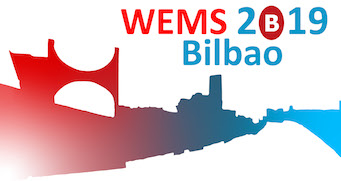Speaker
Description
The idea that “new-is-small” reflects a paradigm moving industries and research. New materials, new applications, new technologies, - but what do we need to make the “new”, understandable, applicable and reliable? Clearly, as things go smaller and smaller, it is more difficult to probe at the appropriate scale without influencing the subject of interest. Ideally, one needs tip-less (contact-less) techniques, not interfering with the system under study. In fact, such an approach has been realized using nuclear probes, where radioactive nuclei interact with their surroundings in a solid on an atomic scale and transmit this information via their radioactive decay complementing current macroscopic techniques. Key microscopic features can be inspected in this way, such as lattice location, diffusion, interaction with defects present in the neighbourhood of the probe atom, magnetic properties, percolation phenomena leading to structural and magnetic phase transitions, doping and transport phenomena, such as you can find in bulk nanomaterials and near surfaces or interfaces. Since the late 70s researchers at ISOLDE have been applying radioactive nuclear techniques to materials science and biophysics research. A considerable infrastructure has been built up on-site to allow scientists to perform experiments using short-lived isotopes. The production of radioactive isotopes online with big yields, elemental and isotopic purity allow the choice of the right probe radioactive element / isotope adequate to study each problem. In this context, Deep Level Transient Spectroscopy and Photoluminescence with radioactive Isotopes and nuclear techniques such as Perturbed Angular Correlations, Emission Channeling, ß-Nuclear Magnetic Resonance, Secondary Ion Mass Spectroscopy, Spreading Resistance Profiling and Mössbauer are very powerful to characterize new materials, particularly from an atomic point of view. ISOLDE is the world reference on production and delivery of radioactive beams of high purity dedicated to many different purposes for, e.g., atomic, nuclear, solid state, biophysics, and medical research. This laboratory is also a pioneer in the use of nuclear techniques – with an enriched potential due to the wide number of available radioactive probe elements – while studying the atomic scale interactions of the probe nuclei with its neighbourhood. This contribution explores the Solid State Physics Program at ISOLDE, isotopes, projects, techniques and their development to analyse new materials.




